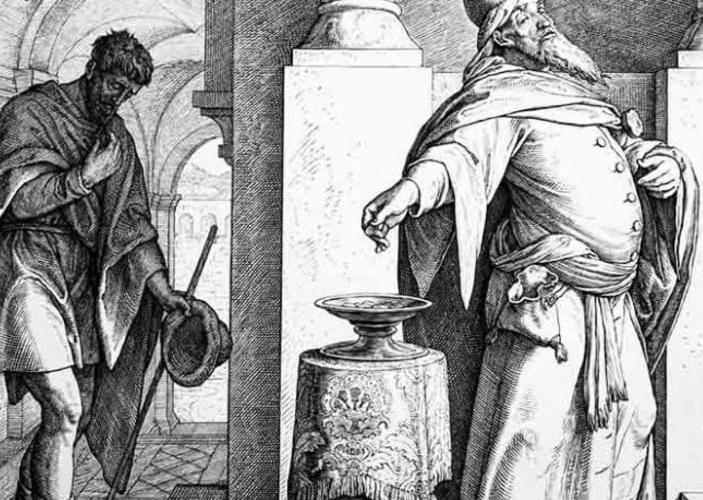Humility leads to a deeper knowledge of oneself
Comparisons can be diabolical. Jesus hardly ever compares people. We don’t find Him comparing Peter with John, or the younger son with the elder son in the story of the Prodigal Son.
Oct 21, 2022

Reflecting on our Sunday Readings with the SMA Fathers
30th Sunday of Ordinary Time (C)
Readings: Sirach 35:15b-17, 20-22a;
2 Timothy 4:6-9, 16-18;
Gospel: Luke 18:9-14
During a prayer meeting, the leader invited those present to share their experiences of God’s goodness to them. The first few speakers shared simply and quietly. The next was a man who seemed very full of himself. Admittedly he started off by thanking God but then continued to tell all present what he had done as a Christian. People started to get bored with his boasting. Then, when there was a pause in his talking, the leader quietly but firmly thanked him and asked another to speak next.
Today’s Gospel is somewhat similar. It speaks of two people, a Pharisee and a tax collector. The danger is that we might regard the Pharisee in the story with the same attitude as the Pharisee regarded the tax collector. We might conclude having read the story, ‘Thank God I am not like that Pharisee!’ But that is exactly the point of the story. Maybe we are more like the Pharisee than we realise. We may have Pharisaical attitudes, at least some of the time. Every time we judge others harshly, are we not regarding ourselves as better than they are? We can have a judgmental attitude even if we are unaware of it — we compare ourselves with others and see ourselves as better than they are.
Comparisons can be diabolical. Jesus hardly ever compares people. We don’t find Him comparing Peter with John, or the younger son with the elder son in the story of the Prodigal Son.
So, we might think we are not like the Taliban and the way they treat their women as very inferior beings. We may thank God my daughter is not an unmarried mother or my son is not on drugs. What of those who are separated or have had an abortion? Anytime we do this with a hint of superiority, are we not being Pharisaical? Obviously one doesn’t need to agree with these but what of our attitudes towards people who may be involved? If we want to compare ourselves with anyone, let us compare ourselves with Jesus and very quickly we will see how we are in reality.
We must remember that the Pharisees were good people. They were strict Jews and tried to follow the teachings of Scripture in their daily lives. The problem with the Pharisee in the parable Jesus told is that he was too aware of his goodness and not aware of his faults. Thus, he was self-righteous and arrogant. Even though he begins by addressing God, his focus is totally on himself as if the good he did were of his own making, without need of God’s grace or help. He wished others to hear how good he was. He didn’t seem to be aware of his need of God. He just wanted God to approve of what he was doing and reward him. Basically he had a profit and loss attitude to God. He was more or less saying to God, ‘Look how virtuous I am. Surely you will have to reward me for all my efforts’. It was as if God was in great need of his virtuous life and he, in his turn, had no need of God
This Pharisee didn’t see any need to improve his life. He felt he was doing all that was asked of him by God. The invitation to pray is an invitation to be honest. The object of prayer is not ‘to babble as the pagans do’ but to listen quietly to God, to hear the truth about ourselves as God reveals it and to change accordingly with the help of the Holy Spirit.
Humbling ourselves doesn’t mean saying negative or bad things about ourselves. It means telling the truth, accepting our giftedness from God and calling on His help in the areas we need to improve. Prayer is not simply something we do but what we receive. In real prayer we receive the truth about ourselves from God, just as we are. Humility leads to a deeper knowledge of one’s self and of one’s need for a deeper relationship with God.
This is equally true of us as a Church. We are a Church of sinners. It is not a sanctuary for saints only but a hospital for sinners! We must beware of thinking we have all the truth clearly defined and think we have no need to learn from others who are not Christians.
The good news of the parable seems clear – God wants to lavish us with His love, with His gifts. But if our hearts are full of our own importance, of pride, what space is there to receive God’s blessings?
‘Jesus, gentle and humble of heart, empty our hearts of pride and make our hearts like your own. Amen’
(Reproduced with permission from the homily archives of the Society of African Missions)







Total Comments:0